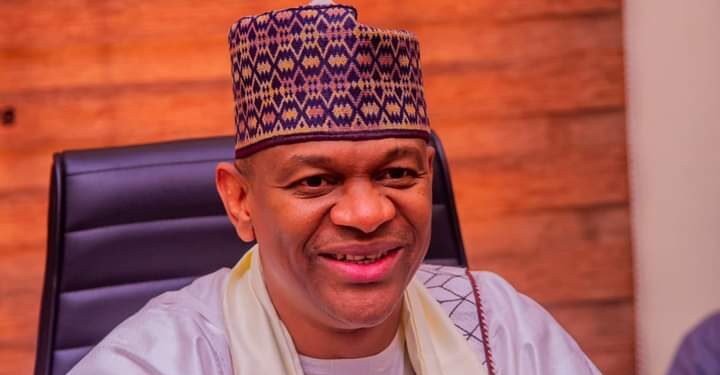The Chairman, Independent corrupt Practices and other related Offences Commission (ICPC), Dr Musa Adamu Aliyu, SAN, has commended the Director-General of National Productivity Centre, Dr Baffa Babba Dan’Agundi for supporting the Anti- Corruption and Transparency Unit (ACTU) to fight corrupt practices in the Centre.
The Chairman, who was represented by the Director, System Study and Review, Mr Olusegun Oguntade, made this commendation at the annual sensitization programme organized by the Centre’s ACTU in Abuja, on Tuesday, December 3, 2024. He was accompanied by NPC ACTU Desk Officer, Mrs Ajoke Ifejika and some other members of the Commission.
” I wish to commend the Director-General of the National Productivity Centre for the support he has been giving to the ACTU in the Centre”, he said.
Speaking on the role of ACTU as an in-house check mechanism for curbing corruption and building ethical public institutions, the chairman said:
“ACTU is an initiative of the Commission. It is the ICPC engagement platform for public sector organizations established to assist the ICPC in curbing corruption and establishing standards in Ministries, departments, and Agencies (MDAs)”.
Emphasizing the support of the management, he explained that “the support of the management is key to the successful operation of the unit.” He therefore requested more support from the management .
Earlier, while thanking the ICPC team for the sensitization and the good working relationship between the two agencies, Dr. Dan’ Agundi stated that his leadership has zero tolerance for corruption and all related practices, citing practical examples of his activities since taking over the helms of affairs of the Centre.
While expressing his appreciation to directors for their continuous support, and the staff for their adherence to the rules of engagement, he advised them to desist from doing anything that would undermine their integrity, tasking them to always do the right thing to avoid getting into trouble.
“Do not get yourself involved in anything that will make you not to speak with confidence when answering questions concerning your job”.
He, however, expressed confidence in the Centre’s transparency and accountability.
“Now that I’m in charge, I make sure
we do not cross any line.
“When I saw your letter requesting for information about projects, I sent them directly to the appropriate person and directed him to supply all the information needed because from what I know, they have done their job well, especially in the procurement process.
Being an Ambassador of EFCC, Dr Dan’ Agundi said he would not cross the line, recognizing that the activities of the Centre were being monitored.
“Your coming reminds us that we are being monitored, and this will prevent people from being tempted to do the wrong thing” he added.
The exercise aimed to promote transparency, integrity, and accountability in public service.
The NPC Anti Corruption & Transparency Unit (ACTU) sensitization exercise targeted all members of staff, emphasizing the importance of ethical standards in public administration. The goal was to enhance the understanding of anti-corruption measures, promote the fight against corruption, and encourage reporting of malpractices.











